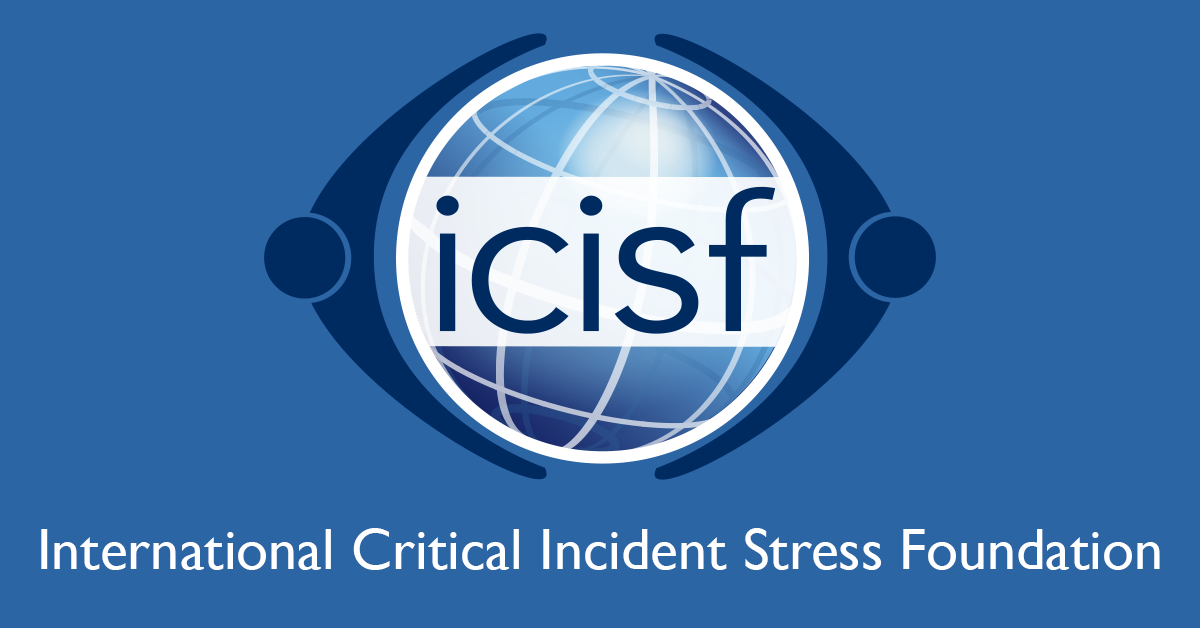What are some "fair fight rules" couples can use to cultivate healthy conflict resolution?7/16/2023 "Fair fight rules" are guidelines that couples can adopt to promote healthy and constructive conflict resolution. These rules create a framework for communication that encourages mutual respect, active listening, and a focus on finding resolutions rather than escalating conflicts. Here are some "fair fight rules" couples can incorporate:
0 Comments
When feeling overwhelmed with anxiety, practicing mindfulness can be a helpful tool for grounding yourself in the present moment and managing distress. Here are some specific mindfulness skills you can utilize:
Christian integration in mental health counseling refers to the incorporation of Christian principles, values, and beliefs into the therapeutic process. It recognizes the importance of spirituality and faith as integral aspects of an individual's well-being. Here are some potential benefits of Christian integration in mental health counseling:
Ultimately, Christian integration in mental health counseling offers an opportunity for individuals to explore the intersection of their faith and mental well-being, seeking a deeper understanding of themselves and finding support within their spiritual framework. In most cases, it is considered unethical for a mental health professional to allow parents to schedule counseling appointments for their adult children without a signed release of information. Here's why:
It is important for mental health professionals to carefully navigate these ethical and legal considerations and prioritize the well-being, autonomy, and confidentiality of their adult clients. What does a counseling release of information allow parents of adult children to do on their behalf? A counseling release of information, also known as a consent form or a HIPAA release, allows parents of adult children to access certain information and be involved in their child's counseling process. The specific permissions and limitations granted through a release of information can vary depending on the content of the form and the laws of the jurisdiction. Here are some common aspects typically covered by a release of information:
It's crucial to consult with the therapist or counseling agency regarding their specific policies and procedures for releases of information, as they may have additional requirements or limitations based on legal and ethical guidelines. Ultimately, the release of information allows parents to be involved in their adult child's counseling process within the boundaries agreed upon by all parties involved. If you have any questions regarding this specific issue, do not hesitate to contact Hayne Steen at [email protected]. In recent years, the importance of mental health has garnered significant attention, with a growing number of people seeking effective and innovative therapies to overcome emotional traumas and psychological challenges. One such therapeutic approach that has gained prominence is Eye Movement Desensitization and Reprocessing (EMDR) therapy. Developed in the late 1980s, EMDR has emerged as a powerful technique for addressing various mental health conditions, including post-traumatic stress disorder (PTSD), anxiety disorders, and depression. In this blog post, we will delve into the mental health benefits of EMDR therapy and explore how this unique approach can facilitate healing and personal growth.
Understanding EMDR Therapy: EMDR therapy is an integrative psychotherapy model that combines elements of cognitive-behavioral therapy (CBT), neuroscience, and bilateral stimulation to help individuals process and resolve traumatic experiences and distressing memories. The approach was initially developed by Francine Shapiro, who observed the natural healing potential of eye movements in reducing the intensity of negative emotions associated with traumatic memories. The Therapy Process: During an EMDR session, a trained therapist guides the individual through a structured series of steps that involve recalling distressing memories or triggering events while simultaneously engaging in bilateral stimulation techniques. This can include eye movements, taps, or auditory cues. These bilateral stimulations are thought to facilitate the reprocessing of traumatic memories and promote adaptive information processing within the brain. Mental Health Benefits of EMDR Therapy:
If you'd like to explore meeting with an EMDR therapist at Elbow Tree, email us at [email protected] or call us at (904) 559-1944. Surfing, the popular water sport, offers numerous mental health benefits. Here are some of the positive impacts it can have on mental well-being:
Developing a healthy strategy for sharing household chores and responsibilities is an important aspect of maintaining a harmonious and equitable relationship within Christian couples. Here are some suggestions for fostering a balanced approach:
Feeling stuck in a "double bind" when making a decision can be challenging and overwhelming. Here are some tips and tricks to navigate through this situation:
by Alex Vis, LMHC Not long ago I became certified in Anger Resolution Therapy. Several conversations with fellow “Peacemakers” led to an increased curiosity about my own relationship and history with anger. I was fairly disrupted to find I am more familiar than I had would have admitted. The more I leaned into my story, the more I understood how my personality has been shaped by anger. The more I sat with others, I began to realize the profound impact anger can have on a person’s life. I’ve seen careers fall apart, families dissolve, and trust decimated. I spent time wrestling with questions about anger. And I started to become skeptical that I could look at our daily experience and not find people injuring each other as a reaction to life’s disappointments. It’s a complex issue, though, this anger deal. As a therapist, I have come to believe that emotions themselves are not bad, but indeed they are a gift. They help us make sense of our surroundings, connect with others, and protect us from dangers. It’s easy, however, to understand how anger could be swept into its own category as the one to be wary of. It’s just too dangerous. The problem I had is that this way of thinking is too rigid. I’m too curious to let myself stay scared of something, especially when I can admit that the fear comes from a lack of understanding. So it was time to learn. The primary objective of the training I received was to be able to help people understand that, as the curriculum stated several times, “It is not our situation that causes an emotion, but what we believe to be true about the situation that causes the emotion.” (i.e. (1) When that girl doesn’t text you back within 20 minutes, you may not be angry because of the lack of response. You may assess that the delay speaks to the level of interest she has in you. (2) When your employee shows up late again, or does a poor job on his presentation, your anger may be more connected to a belief that this is heading towards termination, which would require you to work harder and spend more money training the next person). This is good news and it’s bad news. The good news is two-fold; that we might be able to gain a proper understanding of why we are feeling so angry when we do, and that we can begin to manage the impact of our anger by assessing the validity of our beliefs before acting on our anger. I am convinced that if we could implement this extra step of assessment between the inciting event and the anger response, we give ourselves a chance to make better decisions and experience fewer disruptions in relationships. The bad news is that we are efficiency experts when it comes to making practical sense of our inner experience. We are quick to implement an action that in some way relieves us of the discomfort connected to the core belief or fear that surfaces during an interaction. (Think about that middle finger reflex, or four letter instruction towards an errant driver). This is a kind way of saying that humans tends to be quite stubborn and cognitively lazy! Some are several decades into this life experiment, so to suggest unlearning dysfunctional habits and replacing them with concepts that are, to the individual unproven, could seem pretty daunting. The truth is, it’s not easy. It takes courage to make this kind of change, to put forth the kind of effort that may reveal ugly thought patterns, or embarrassing beliefs. But oh how often I’ve seen courage rewarded! My encouragement is for you to lean into the discomfort of your anger. It is important that anger does not control us or remain unchecked within us. We are all responsible for the actions we take in anger that impact others around us. But there is no condemnation in the reality of your anger. Anger is not a problem to be fixed, resolved, solved, or suppressed. It is not a sin to feel anger, and it’s not unnatural to find oneself upset in situations that are intensely disappointing. Our brains are wired in such a way that only in extreme unhealth or injury can one navigate the complexity of life and human relationships without experiencing this God-given emotion. More about the biology of anger later. For now, just take a minute to check in with yourself, a parent, or your spouse. Have you hurt a loved one and you don’t even know why? Do you enjoy the energy that anger can offer you? Is it difficult to avoid the comment section on that site, even though you know how quickly those ugly interactions wreck you? Maybe you could use a little help being curious about what those beliefs behind your anger are all about. Perhaps someone can sit with you and get to know even that dark part of you that you would never show others. Maybe their reaction will surprise you. Just maybe your clenched fist will relax a bit as the shame of your anger melts away.
I have been listening (and re-listening) to a fascinating podcast episode on Radiolab called “Of Bombs and Butterflies”. Maybe it will be as meaningful to you as it has been for me. This podcast episode is exposing the resilience (not the presumed fragility) of a butterfly species that was becoming extinct. Mind-blowing! It’s about fostering an environment that promotes the flourishing of the Saint Francis Satyr butterfly. But as you’ll discover, it is about way more than bombs or butterflies.
Researchers discovered that this butterfly species was going extinct so they invited experts and the sharpest minds to help rebuild a fruitful habitat for this butterfly population to recover. Their multiple failed attempts revealed that this species of butterfly actually flourishes in an environment that has been devastated and blown apart on a military bomb site. The devastation of dropped bombs on this military base actually helped create an environment that is rich in the nutrients and elements that promoted the sustainable return of this endangered species. Why is this so important to consider? Suffering can prepare the soil of the soul for flourishing. If we adopt a binary approach to the experience of suffering, that is to say, suffering is only “bad”, then we may consequentially deny the gifts of our own devastation. Avoidance of suffering will result in the neglect and endangerment of our self and soul. What are the gifts of devastation? For the Saint Francis Satyr butterfly, bombs, fire and beavers contributed in the cultivation of the perfect habitat. Trees, vines, and grasses that would normally take over that ecosystem were bombed, burned or beavered out. In the human experience, suffering does tear some things down and the breakdown of those things will feed the soil of our lives. Everyone will encounter suffering. We do not necessarily need to go hunting for it but we also do not need to become numb to its presence either. Suffering does not always insinuate catastrophic circumstances. For some, suffering can come in the form of something as common as aging. When our bodies begin to break down due to neglect or aging, we come face to face with painful realities. For others, it can be devastating to retire, even with a full 401K of retirement plan. The feeling of no longer being needed in the same way can be awfully painful. Becoming empty nesters brings with the joy and pain of recalibrating when children live outside the family home. When kids go off to college, it can feel devastating to not have your son or daughter present to you in the same way you had once enjoyed. There are also deeply catastrophic experiences that can level us. A medical diagnosis, company layoffs, death of a child, evidence of spousal infidelity, sexual trauma, exposure to war, abuse or abandonment as a child, to a house fire are just a handful of experiences that can leave us feeling bombed out and burned to the ground. Suffering is not what makes us go extinct rather it is preparing the soil for our soul’s flourishing. In this podcast episode, the ecologist makes the comment that some butterflies had to die in order for the butterfly population to recover. Read that again. Some butterflies had to die in order for the butterfly population to recover. Death and resurrection. We all love resurrection but if I’m honest, I am not a huge fan of the dying part. We are being invited to enter into the death and devastation with resurrection eyes. Jesus enters into the human experience so vulnerably. He did not avoid the descent from heaven into the most vulnerable human form, a baby. He became known as a man acquainted with sorrow. He wept, as a baby learning to emotionally attach to his young mother and as adult being ripped away from all of his earthy attachments. Jesus allows the full weight of his own devastation to hit him in the chest. In his prayer life, the night before his own death, he confesses that he “can not drink the cup.” His honesty in the anticipating his own devastation is striking. Well, he does drink the cup and he does enter into the worst of the worst. His death was absolutely devastating. Jesus enters into his own devastation and he wants join you in yours. |
ELBOW TREEArchives
July 2023
Categories
All
|










 RSS Feed
RSS Feed














